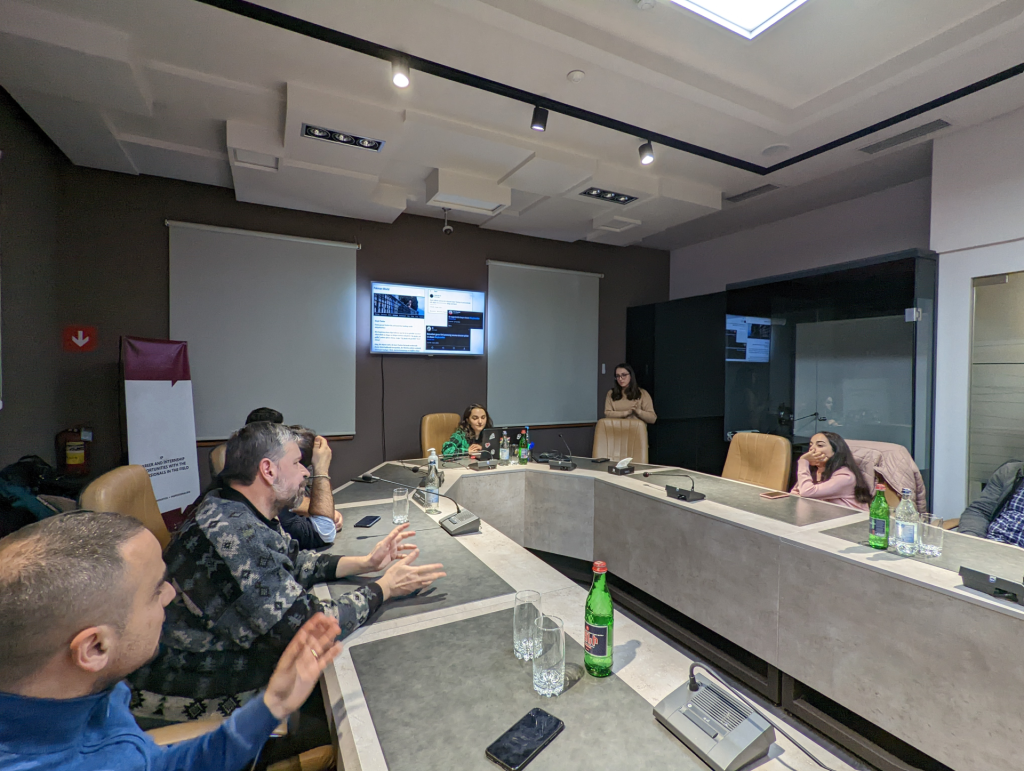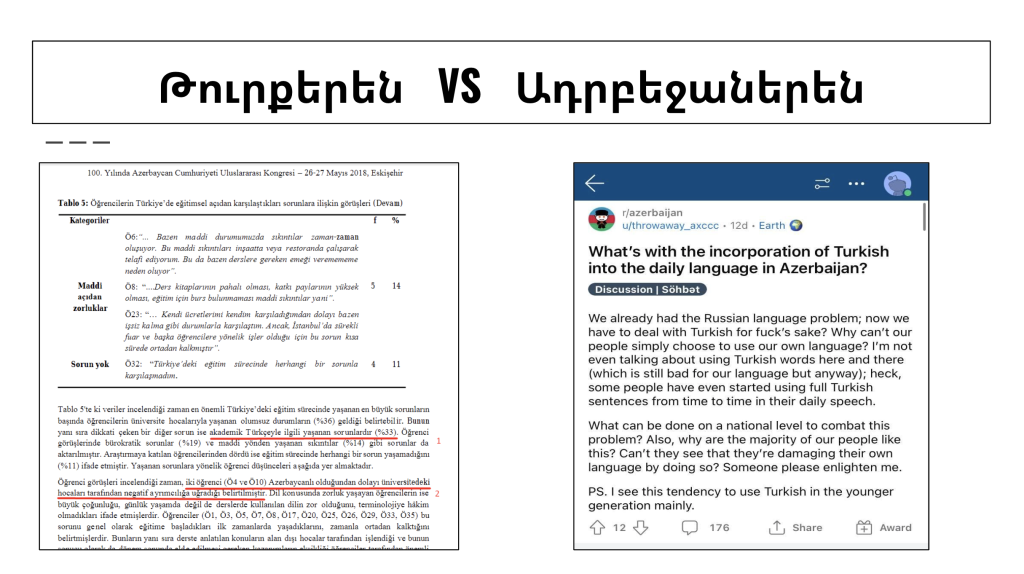On December 14, ORIENT 360 NGO held a seminar-discussion titled “Turkish-Azerbaijani Relations: The Other Side of the ‘One Nation, Two States’ Narrative,” presenting the less-explored aspects of Azerbaijani-Turkish relations, particularly the perceptions each society holds of the other, which often challenge the widely promoted slogan implying unity between the two nations.

The discussion was led by the NGO’s founding members and Turkologists, Sona Khachatryan and Gohar Nalbandyan, who explored the sociopolitical and cultural interactions between the two peoples. While Turkey and Azerbaijan frequently promote the idea of fraternal closeness, participants examined both historical and current realities that point to mutual mistrust and inequality.
One of the issues discussed was the language-based power imbalance. Azerbaijani students in Turkey often face linguistic barriers and discriminatory attitudes. At the same time, Turkish media and educational institutions frequently refer to the Azerbaijani language as a dialect of Turkish rather than a distinct language, reinforcing a perception of cultural subordination.

The seminar also addressed how these differences play out in everyday life. Despite cultural proximity and the growing influence of Turkish media, Turks and Azerbaijanis differ in language, religious denomination, and everyday customs—differences that can lead to friction in routine interactions. The widespread popularity of Turkish TV shows, music, and entertainment in Azerbaijan has sparked growing concern over the decline of “pure” Azerbaijani, especially among younger generations. The 2014 social media campaign using the hashtag #köylütürkler (“village Turks”) was cited as an example of mutual ridicule and online insults between Turkish and Azerbaijani users.
The event also touched on broader political and logistical disagreements, including the closure of land border crossings between Nakhichevan and Turkey, and the theories circulating around that issue, which relate to internal political shifts within Azerbaijan.
The seminar received strong engagement from participants, prompting important discussions around propaganda, nationalism, and identity politics—moving beyond official rhetoric.
The discussion was an integral part of ORIENT 360’s mission to promote deeper regional understanding through research, narrative analysis, and strategic education.
